On Saturday we went mostly with how we were feeling, but we managed to get a lot of information and meet interesting new friends who shared their knowledge and positive energy with us.
In the morning, we were joined by Fadi Kanso, an eco-consultant and grower who only recently returned to Lebanon started growing natural food. Fadi brought with him delicious peppers, eggplants, cucumbers, tomatoes, capsicums, lettuce, thyme and mint from his garden. Together we talked about sustainable energy in an around buildings. The first step in meeting the energy requirements of a house or any other building involves a survey of its needs and available solutions in terms of feasibility, cost-effectiveness and sustainability, ideally making use of the building's placement and location, as well as locally available materials.
Klaudia then explained the inspiring ideas behind transition towns and how permaculturists, envrionment activists and other health-conscious citizens have started making the transition to more eco-friendly cities.
This brought us to talk about natural techniques of building houses, using earth, wood (even living wood!), stone, straw and even recycled materials. Our friend Nathalie Rosa Bucher also dropped in with Joseph Brakhia, a permaculturist and architect who told us about his experience in introducing people in Lebanon to permaculture. A bit further south from Saidoun, Joseph has completed a permaculture garden of 1,500 square meters with 50 different species of trees and food plants, some trees producing food. For him, seeing us hold the PDC for the first time in Lebanon - 20 years after he completed his own PDC in Australia - was an encouraging sign of hope for the growth of the movement.
For Joseph permaculture is the optimal production of food on a small piece of land, for which it is crucial to know botany, particularly local indigenous plants. “I never made a penny out of permaculture, but I made amazing friends and had great food, here in Lebanon we’re still in the preaching phase," he said.
Later in the afternoon, our PDC co-instructor Betty got all of us busy trying to produce biochar using a home-made Beaner Stove. Biochar is similar to charcoal and is an effective way to sequester carbon in the soil to enrich it. It is obtained by burning biomass in a low-oxygen environment (pyrolysis). To produce pyrolysis, we experimented with 2 soda cans in which we cut out holes and tried to burn wood using a low flame for low consumption. We met with some mitigated success but it is worth looking into the process in more detail.
Sunday was our day off where some of us took a long hike on the outskirts of the village while others joined the villagers to watch the Jezzine rallye passing through Saidoun and make new friends. It was a good opportunity to relax and slow down after an exciting first week.
Tomorrow starts the second week of the PDC and we can't wait to get started again!
In the morning, we were joined by Fadi Kanso, an eco-consultant and grower who only recently returned to Lebanon started growing natural food. Fadi brought with him delicious peppers, eggplants, cucumbers, tomatoes, capsicums, lettuce, thyme and mint from his garden. Together we talked about sustainable energy in an around buildings. The first step in meeting the energy requirements of a house or any other building involves a survey of its needs and available solutions in terms of feasibility, cost-effectiveness and sustainability, ideally making use of the building's placement and location, as well as locally available materials.
Klaudia then explained the inspiring ideas behind transition towns and how permaculturists, envrionment activists and other health-conscious citizens have started making the transition to more eco-friendly cities.
This brought us to talk about natural techniques of building houses, using earth, wood (even living wood!), stone, straw and even recycled materials. Our friend Nathalie Rosa Bucher also dropped in with Joseph Brakhia, a permaculturist and architect who told us about his experience in introducing people in Lebanon to permaculture. A bit further south from Saidoun, Joseph has completed a permaculture garden of 1,500 square meters with 50 different species of trees and food plants, some trees producing food. For him, seeing us hold the PDC for the first time in Lebanon - 20 years after he completed his own PDC in Australia - was an encouraging sign of hope for the growth of the movement.
For Joseph permaculture is the optimal production of food on a small piece of land, for which it is crucial to know botany, particularly local indigenous plants. “I never made a penny out of permaculture, but I made amazing friends and had great food, here in Lebanon we’re still in the preaching phase," he said.
Later in the afternoon, our PDC co-instructor Betty got all of us busy trying to produce biochar using a home-made Beaner Stove. Biochar is similar to charcoal and is an effective way to sequester carbon in the soil to enrich it. It is obtained by burning biomass in a low-oxygen environment (pyrolysis). To produce pyrolysis, we experimented with 2 soda cans in which we cut out holes and tried to burn wood using a low flame for low consumption. We met with some mitigated success but it is worth looking into the process in more detail.
Sunday was our day off where some of us took a long hike on the outskirts of the village while others joined the villagers to watch the Jezzine rallye passing through Saidoun and make new friends. It was a good opportunity to relax and slow down after an exciting first week.
Tomorrow starts the second week of the PDC and we can't wait to get started again!

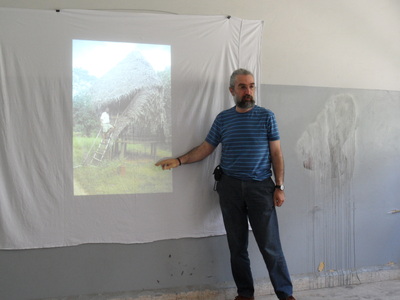
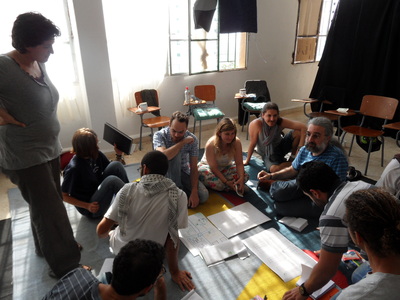
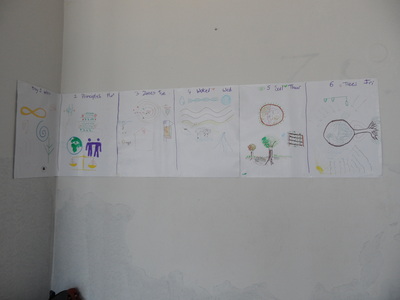
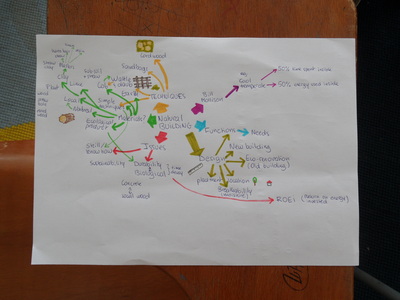
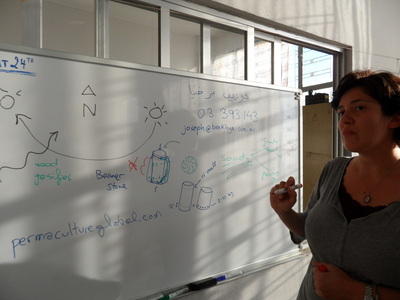
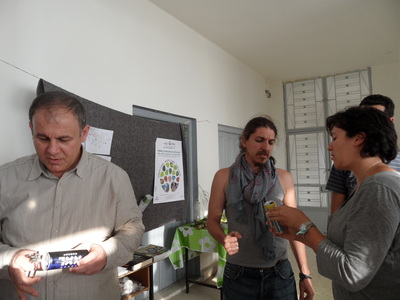
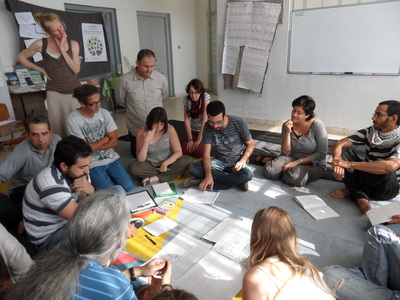
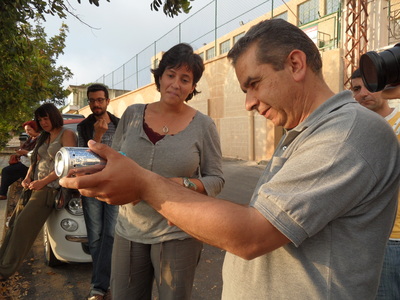
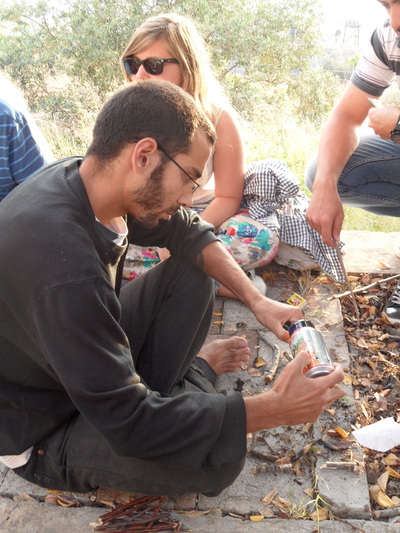
 RSS Feed
RSS Feed
